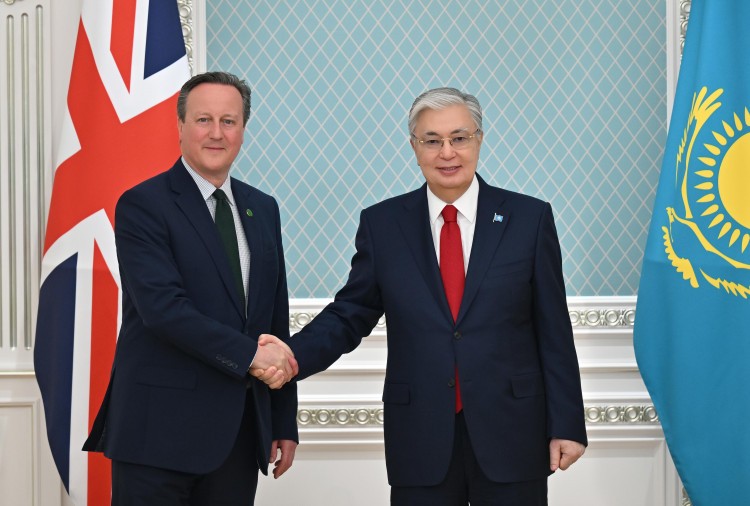Britain’s Cameron Signs Strategic Partnership Agreement in Astana
A strategic partnership and cooperation agreement between Kazakhstan and Great Britain was signed by the two countries' foreign ministers, Murat Nurtleu and David Cameron, in Astana on 24 April. The Kazakh Foreign Ministry has commented that the document aims to strengthen bilateral relations in a wide range of sectors including foreign policy and security, trade and investment, protection of intellectual property, partnerships in energy and raw materials, transportation, protection of the environment and climate change, banking and financial services, employment and social policy, science, and education. Nurtleu added: “This comprehensive agreement will be a significant step in taking political, trade and investment relations between Astana and London to new horizons… We believe our strong and mutually beneficial strategic partnership will continue to strengthen all areas, from energy to rare metals, ecology to education.” Cameron recalled that strategic dialogue between the countries had begun eleven years ago during his first visit to Kazakhstan as Britain’s prime minister and confirmed the UK’s commitment to developing cooperation with Kazakhstan as its key partner in Central Asia. Memoranda of understanding on opening a branch of Queen’s University Belfast in Almaty and launching Kazakh language courses at Oxford University were also concluded during Cameron’s visit. At a meeting with Cameron later that day, Kazakh president Kassym-Jomart Tokayev reiterated the importance of collaboration between the two countries and commending the strategic partnership and cooperation agreement, announced, “I am confident that this comprehensive document will definitely give a fresh boost to our multifaceted bilateral agenda.” Great Britain is among the highest ten foreign investors in Kazakhstan. Since 2005, Kazakhstan’s economy has received $17 billion in FDI from the UK and last year alone, over $795 million .



